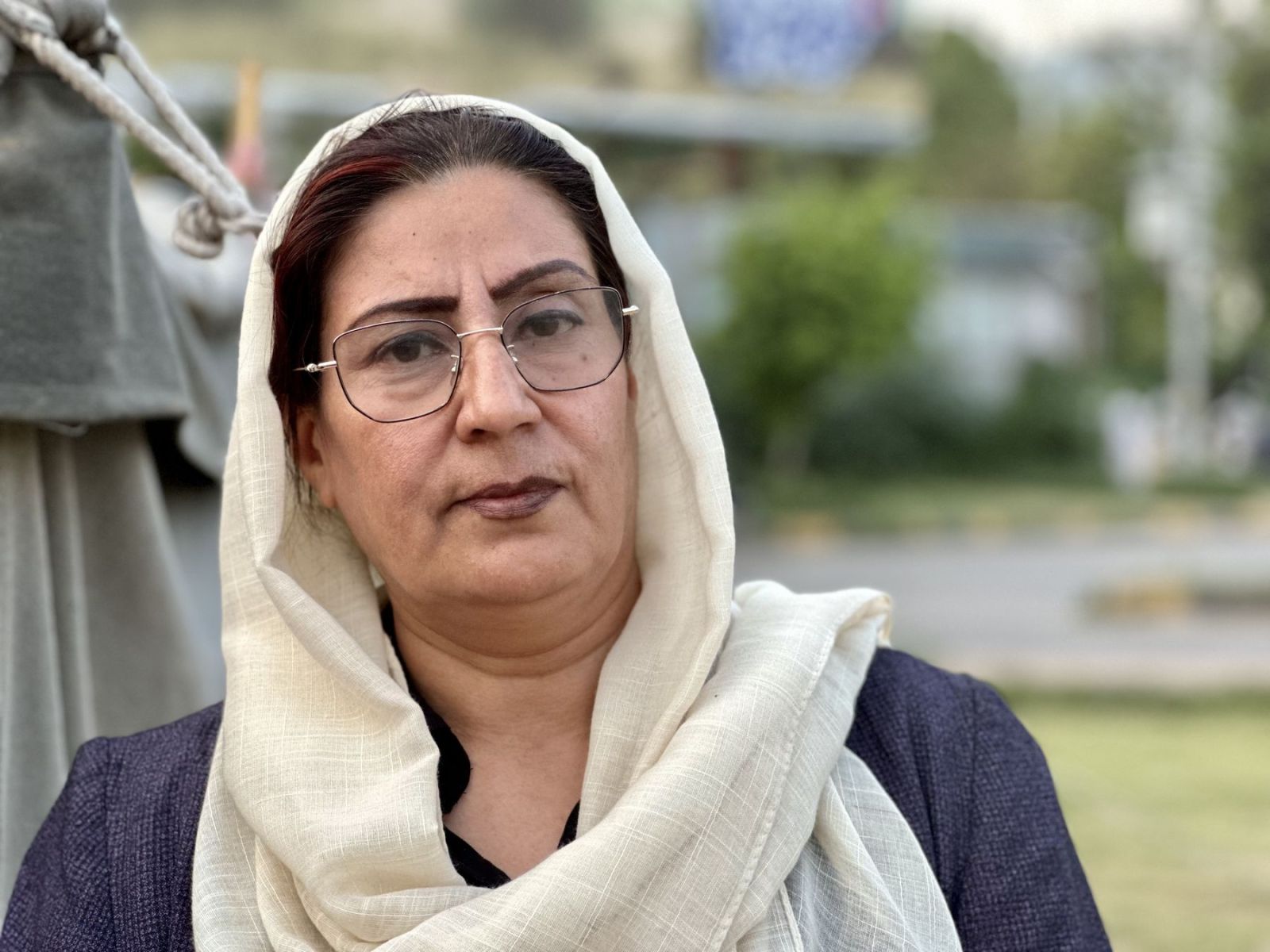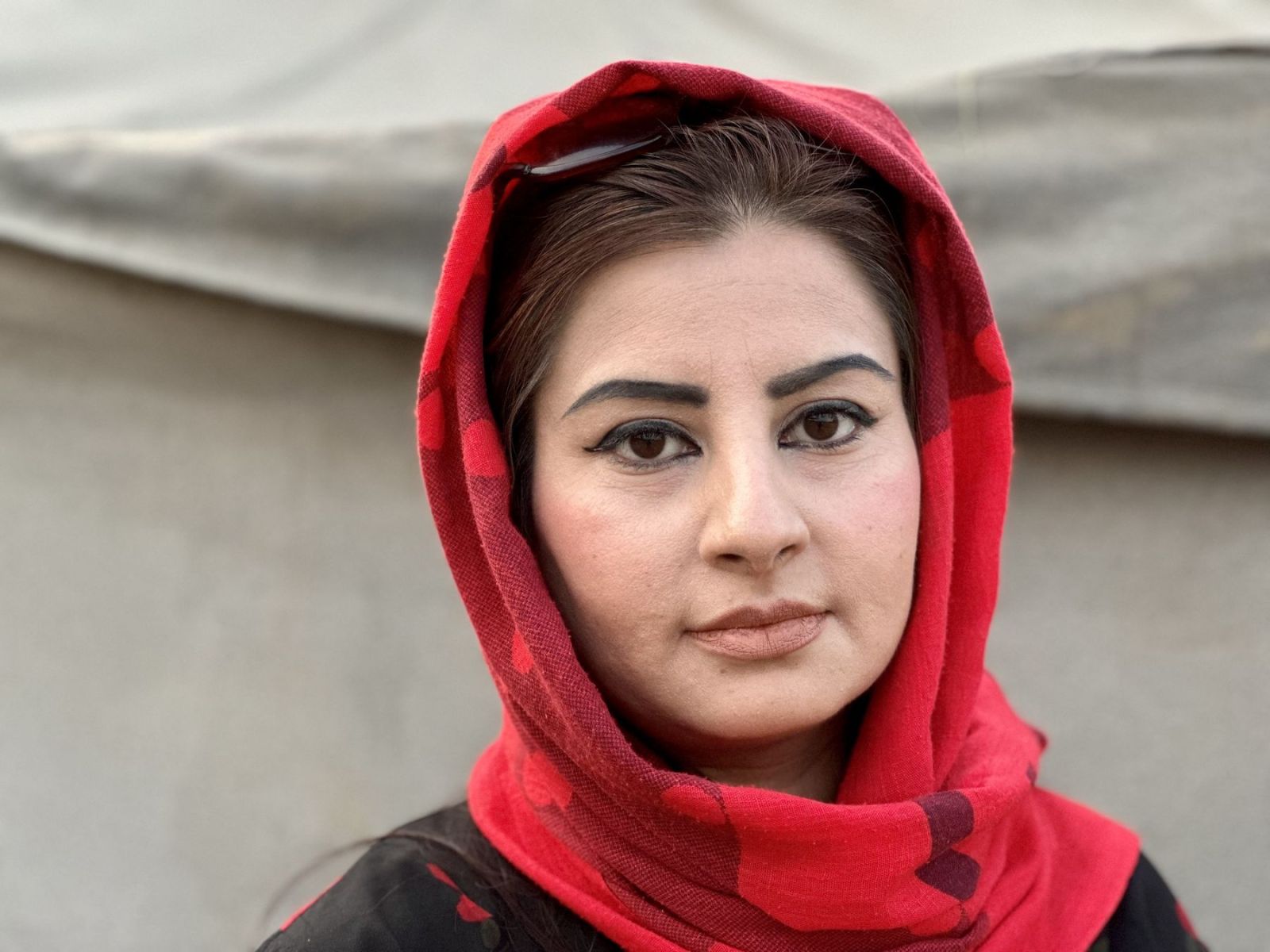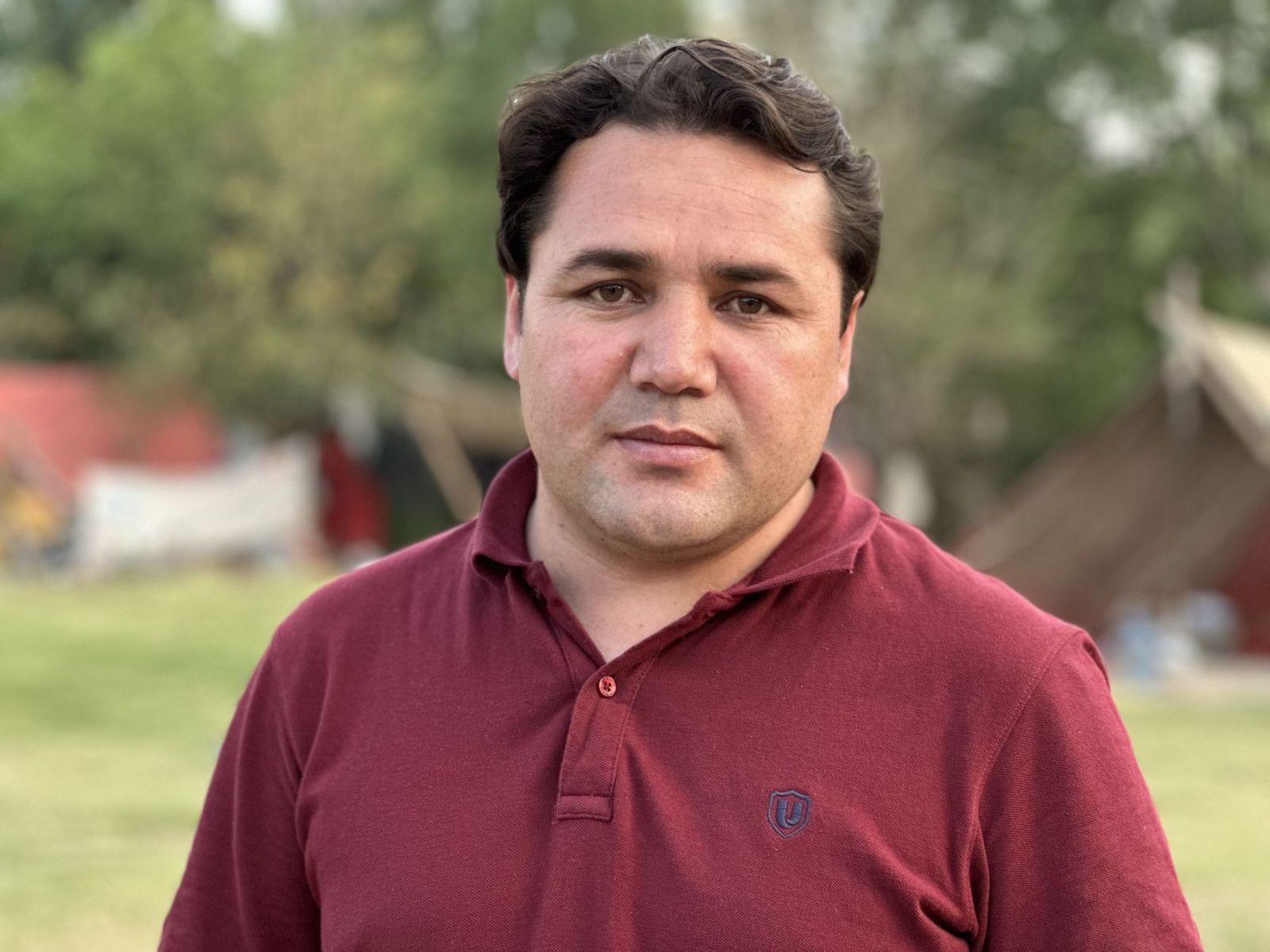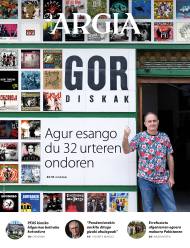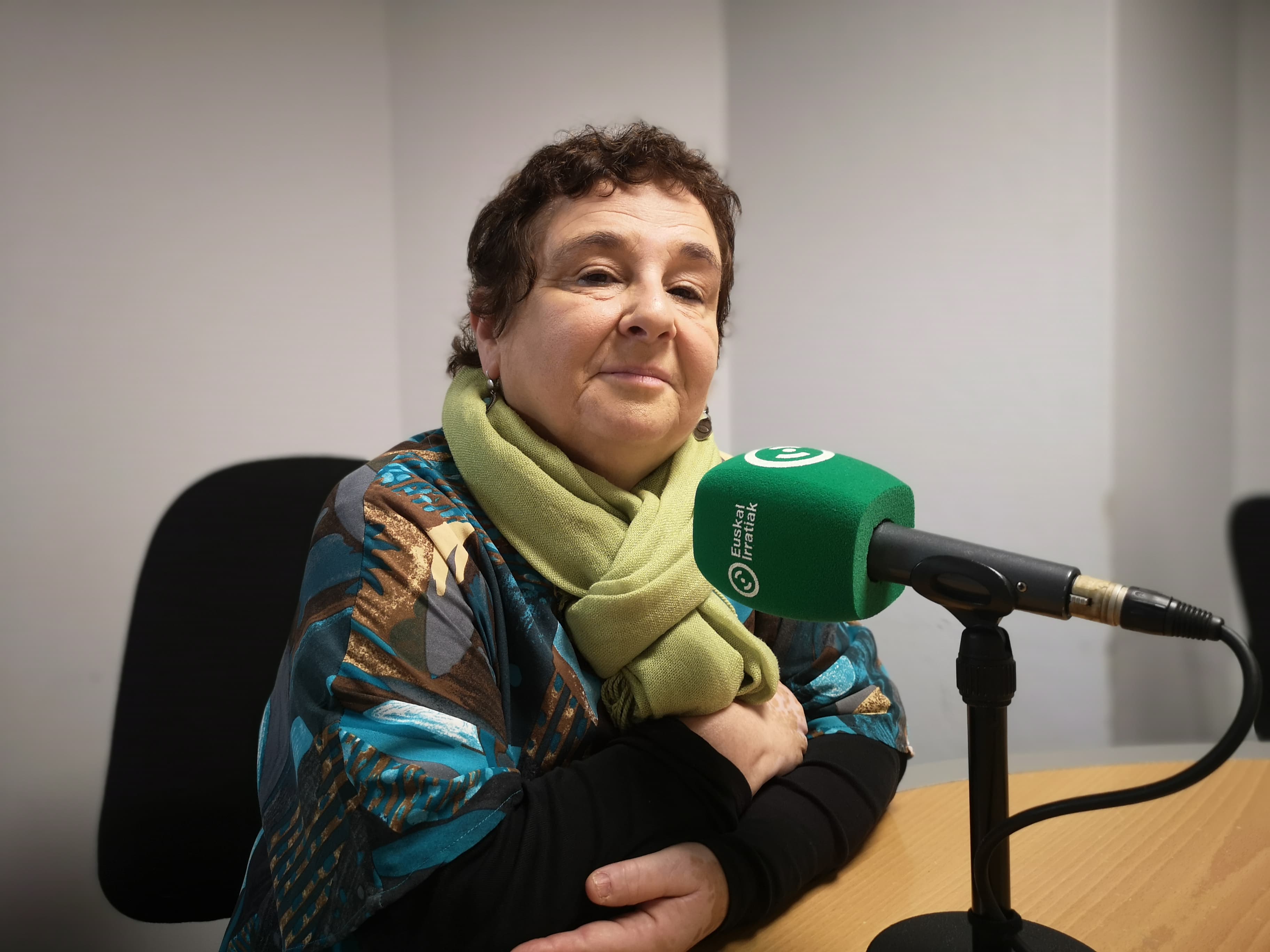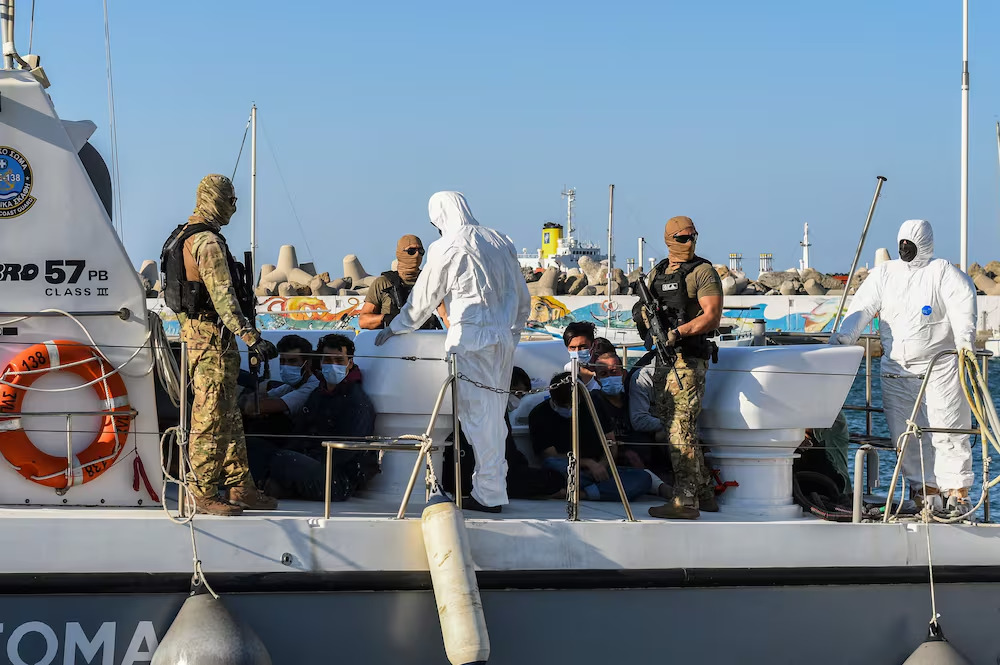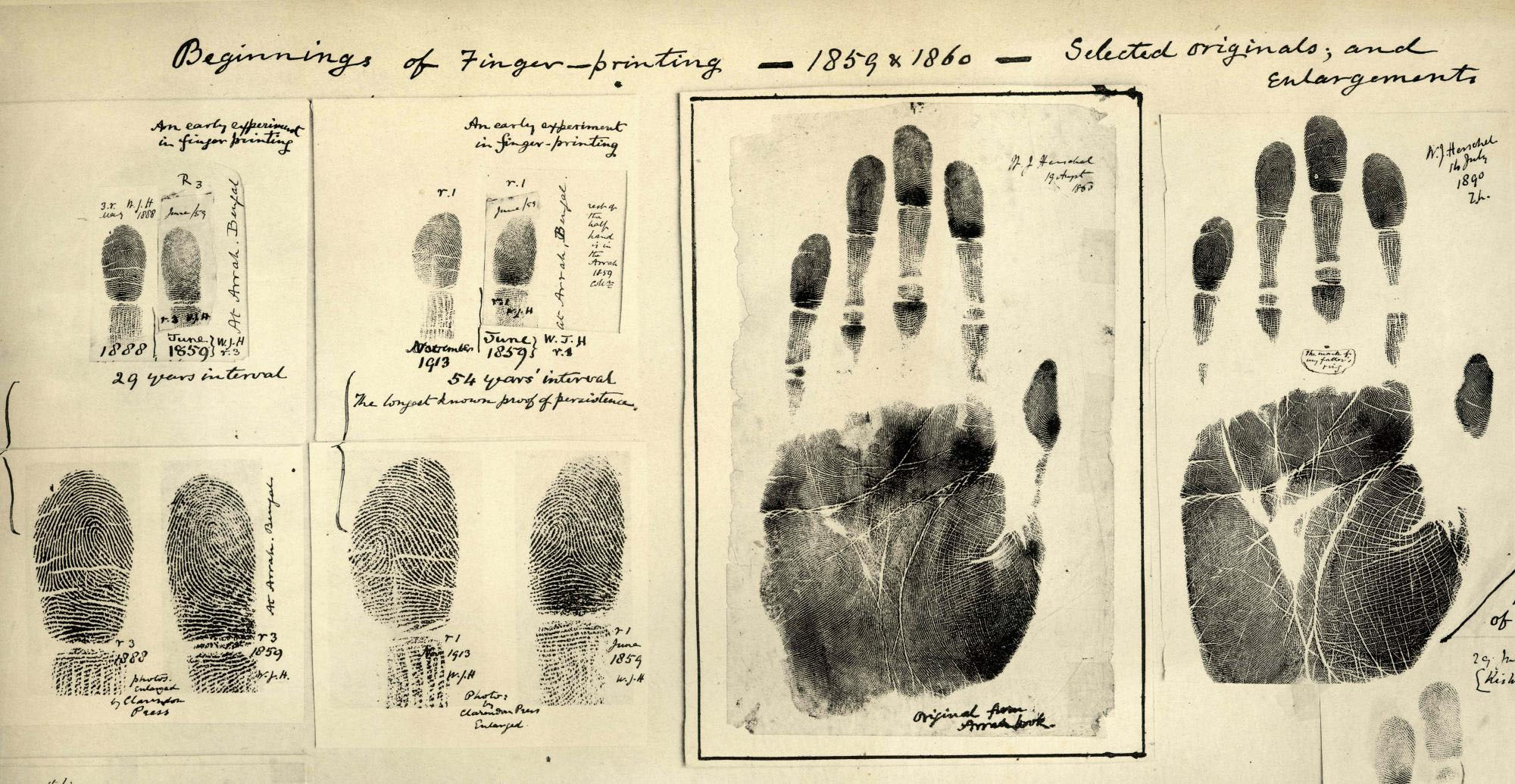They kill us
- On 15 August 2021, when the Taliban conquered Kabul, thousands of Afghans tried to escape. In that month alone, over 35,000 people crossed the border with Pakistan, compared with 145,000 people crossing the other side of 2022. However, as a result of these events, but also despite being the country that has taken the most Afghans in the past, Pakistan has no legislation to deal with the issue of refugees or a law guaranteeing its right to asylum. Human Rights Watch has denounced that, although the United Nations High Commissioner for Refugees (UNHCR) has its permanent seat and is responsible for its competence, the Government of Islamabad is only hindering the intervention of this agency, and since 2007 has not recognized the status of refugee to a single citizen from Afghanistan. Millions of people, in many cases three generations of the same family, live in legal limbo.
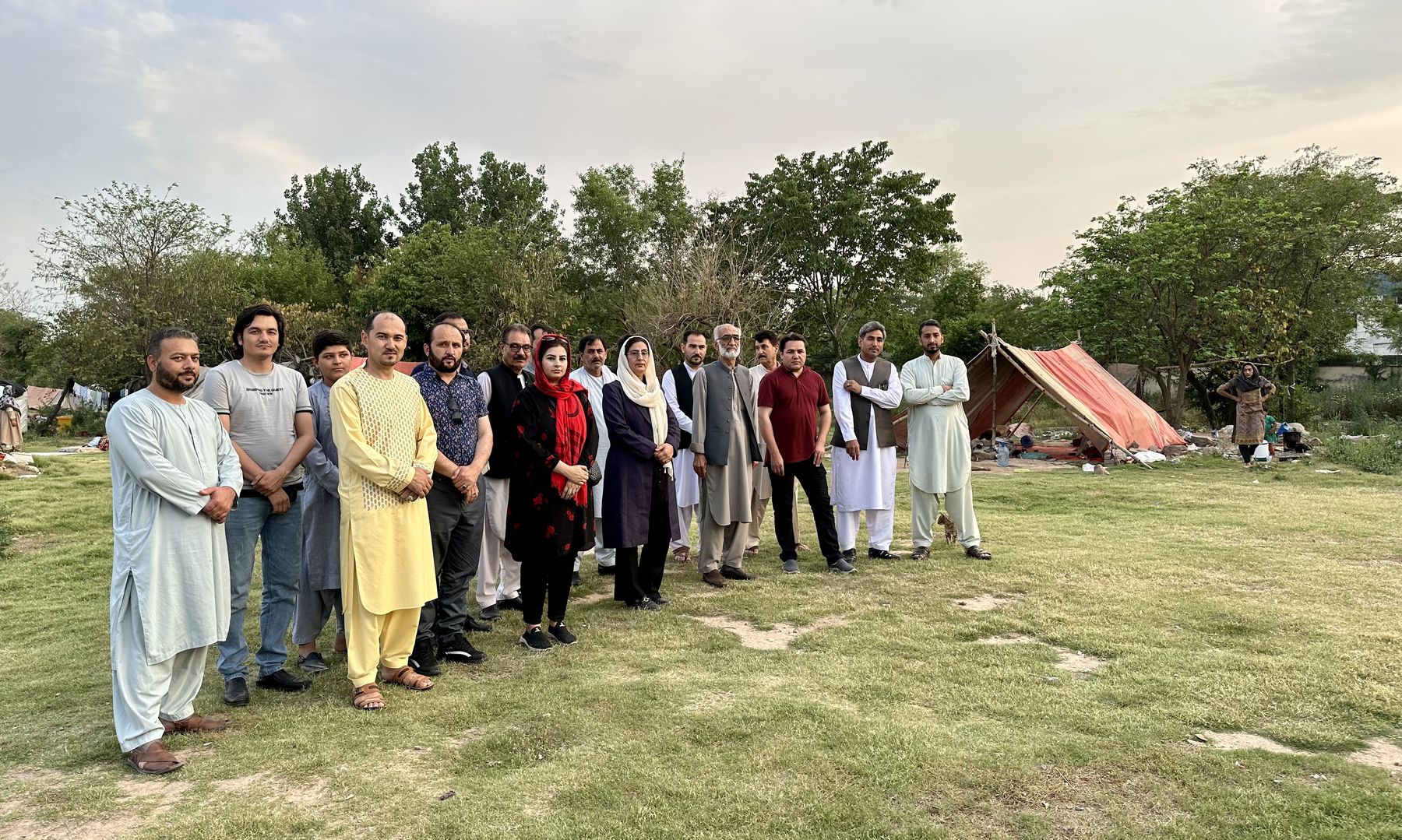
All photos: Igone Mariezkurrena
Kill us! Let them kill us. In two words, for six months, 4,700 Afghans held an uninterrupted concentration at the headquarters of the Pakistani National Press Club in Islamabad. As the Taliban entered Kabul, the protest began six months after leaving their country to demand that the Government of Islamabad recognize them as refugees. Most were teachers, human rights activists, journalists, soldiers and officials. “Our lives are in danger, but they do not protect us, we cannot work, our children cannot study, they do not want to see us… What do we have? They kill us!” the handwritten banners said.
“In April 2022 we installed the tents,” says Mohammad Jan Ahmady, and for half a year we continued here and night, but no institutional or political representative was coming here,” he complains. At the same time that we stepped on the pasture in which they lived at that time, the desire was darkened: “None of the media sent reporters and I’m sure no news came from us abroad.” Ahmady is a journalist, was editor of the weekly Silk Road during his stay in Afghanistan and is still in teleworking, as his enthusiasm is the publication of the massacres against the ethnic minority of Taliban seeds and groups ISIS KP (Islamic State of Khorasan Province).

“The persecution of our people began in the 19th century and we have since suffered systematic exclusion, extortion, kidnappings, torture, summary executions and murder in Afghanistan,” he says. In the months leading up to the recovery of power by Taliban, the United Nations (UN) recorded more than 20 attacks, more than 150 deaths and hundreds injured. “There are now no international witnesses there,” Ahmady adds, and attacks on our brothers are more crude than ever.” According to the report Silent Crime, published in May by Silk Road, ISIS KP has killed 310 people in the cities of Kabul and Kandahar, and although the Taliban promised to protect them, dozens of seeds have been killed in the province of Daykundi and robbed land and forced to displace 25,000 people.
Ni EE.UU. nor the transitional administrations following the invasion of Afghanistan, no presidency that governed the Islamic Republic in the period 2004-2021 has launched a special commission to investigate the genocide against Gijitas seeds. Ahmady feels his indifference is total: “And don’t think that in Pakistan we are sure, because here too there are many Sunis who make an extreme interpretation of Islam.” He also says that they are discriminated against on the basis of ethnic prejudices. He believes that the only solution for them is for him to be a third country.
“When the Pakistani Police started arresting people, we abandoned the concentration – Mohammad Zaman underlines – we took our security first.” Zamán worked for a UN sub-agency in Takhar Province, Afghanistan, and confesses that within a few months his family was a disgust: “Here we did not have water, we ate what the citizens were giving us, we had no choice but to go to public toilets or mosques, and we had health problems due to lack of hygiene, but we kept our demand dignified.” Remember that almost every day agents walked in zokomira, watching “as criminals”. “Sometimes, without any court order, they caught the people, took them to police and held them for hours.” In these surveys, Zaman states that verbal treatment was violent, “especially against women” and threatened them. The camp was destroyed on 15 October 2022 in exchange for releasing seven closed protests.
Mohammad Zaman (Takhar, Afghanistan, 1973). Head of the Alliance of Civil Society and Human Rights Institutions of the Office of the United Nations High Commissioner for Human Rights (OHCHR) in the Afghan province of Takhar.
“The UN sells us and of them I no longer expect anything, but I want to tell Western citizens that their rulers asked us for trust and collaboration to implement their allegedly democratic program in Afghanistan, and we did our best. We collaborated with your institutions, risking our lives by hand, some of them also joined the fronts of NATO, many of them have been young, not few of them have lost their heads of families in the hands of the Taliban… and now what? They have left us behind! The Taliban have come to power with blows and fear and we are seeing the international community as an accomplice to this project. In fact, our children and grandchildren trapped in Afghanistan are kidnapped to eat their heads in Madrasses (Islamic schools) and become the future suicide bomber.”
Adilla Akhtari (Kabul, Afghanistan, 1972) Professor and member of the Afghanistan Youth Power Organization.
“Here I don’t have permission to work, I can’t keep teaching, and our kids are depressed because they can’t go to class. We run away with savings, but we are running out and in Pakistan we have no income. My husband collaborated with the European Union Police Mission in Afghanistan against the Taliban, who were shot dead in November 2016. I never received compensation, a call from anyone or a message of condolence. Nobody asked me how I was, how I felt, if I needed something. In Afghanistan there are hundreds or perhaps thousands of widows who have lost my husband, many have no food and children are starving to death.”
Zohra Jan Wahedi Akhtari (Kabul, Afghanistan, 1984) Activist for women's rights. Afghan Women’s Political Participation Network and member of Afghan Women’s Movement.
“We spent days on the Torkham walkway, waiting on the border, because despite carrying with them the passport and documents that showed our activism it was very difficult to cross it. The traffickers were there, mixed with the Pakistani Police, and families were able to pay USD 2,500 per member in exchange for letting it pass. Embassies also act on corruption in Islamabad and accept bribery: $1,000 to accelerate the process of acquiring political asylum. However, these asylum programmes are very limited; for example, Spain only issued 6,000 numbers. Every day I waste over 3,000 rupees (9,60 €) that I call one embassy and another to know how my lawsuit is. We work on our own, the UNHCR has not helped us in anything.”
Mohammad Jan Ahmady (Ghor, Afghanistan, 1990) editor of the Afghan weekly Silk Road and member of the Hazara ethnicity.
“When the Taliban took power, they formed a list of 1,500 ‘to end’ Afghans, they sent him to all borders and the new Interior Minister opened the call via Twitter for these people to die by a knife. Two have recently been killed in Karatxi and Peshawar. They also sent the order to ban the entrances and exits to which we are at the seed, so, as we could, with the faces covered, we fled. The Afghan embassy in Islamabad is very alive, the Taliban are also here; they have many accomplices in Pakistan, among others, because many occupants of the current regime studied at the University of Peshawar (Pakistan). My partner and I, since we arrived, have moved three times, we fear that they will easily identify us by our traits and kill us.”
Zaman explains that they still try to get to know each other, but that they have a lot of work to do to ensure their own survival. Some, “lucky”, advance thanks to their relatives in Pakistan. Other families live grouped in shared houses, “and those who only have, therefore, remain in this park – it has become angry – ask for or help beneficence”. Organized protest does, but harassment of Afghans is not interrupted. On 5 June, the police detected 175 people in Islamabad. On the eve of the holiday in France, General Bajwa of the Pakistani Army approached an Afghan refugee on the street, who was condemned peacefully but unreservedly by the behaviour of the Pakistani Army with Afghan refugees and the violation of human rights. The video went viral and the next day the arrests came. A further 500 people have been recruited in the following weeks until the drafting of these lines. The interviews for this report involved the translator Fatima Atif, member of the organization Human Rights Commission of Pakistan (HRCP), who assured that the men who carried out these last arrests did not have an official car and were in street clothes.
“Although we have shown that the Taliban aspire to us because of our militancy, the Pakistani Government has not considered us refugees – the voice is broken to Adana Akhtari. The UNHCR has not registered us or processed the documentation that would officially give us the status of asylum seekers.” Without them, he says they have been denied the most basic human rights (work, education, housing and health), “we do not have the right to live without fear”. In fact, since 31 December 2022, they have been under threat of deportation. This was set by the Pakistani Government as the deadline and ordered that, if any undocumented fugitive were subsequently detected, he return immediately to Afghanistan. Foreigners Act 2016 provides for a prison sentence of three to ten years for these cases. Asked Muhammad Mudassar, director of the Society for Human Rights and Prisoners’ Aid (SHARP), 700,000 “newcomers” (after August 2021) are in this situation.
She was a high school teacher in Kabul and fled with her sister Zohra Jan almost two years ago.
“Only the workers of the embassies managed to catch a plane – the latter has clarified – these images spread around the world – and the television channels will catch them back for the second anniversary – but the vast majority of us are driving or walking away from the border.” It was a “hard” road and a long wait until they crossed the border and managed to purchase a tourist visa for 750 dollars head for 60 days. “Pakistan’s Interior Ministry is enriching itself with corruption, with our despair,” he said. He adds that the experience is being “very lonely”, who have been writing to presidents, prime ministers and foreign ministers of countries with diplomatic representation in Islamabad, who have called on embassies to hold talks to seek asylum, but who have not received a response. “The visa expired a long time ago, but to renew it we should go to the Afghan embassy or the Durand Line (border) and it is too dangerous.”

The 'old' refugees
were negotiated in 1893 by the British Rajá with Afghan King Abdul Rahman Khan amir and established the Durand Line with the aim of strengthening control over northern India. Since then, that has de facto been the border between Pakistan and Afghanistan. However, families in Northern corridors and Balutxistangos do not recognize legitimacy: they denounce that they have separated the tribes that live on both sides of the border and have closed the steps that they have historically used for trade and livestock. They say that they have drowned the sources of income of these communities, but that it simultaneously feeds the borders with opium and trafficking in human beings. In fact, the Pakistani Government began in 2013 to dig a trench of 1,100 kilometres long, on the pretext of “cutting off the movements of terrorists” and with the help of the US, which has already fenced 98%. On the contrary, during all these years no Afghan government has recognised the current Taliban regime as an international official border.
In any case, in 1979, this same Durand Line witnessed the first major migratory wave from Afghanistan to Pakistan. Following the uprising of Saer, when the war broke out between the Democratic Republic of Afghanistan, sponsored by the Soviet Union (USSR), and the EE.UU. 400,000 Afghans fled to Pakistan and, in 1988, when USSR troops returned, five million were displaced across the border, according to UNHC data.
The refugee status was first recognized by the UNHCR to the Afghans who fled that war and the subsequent civil conflicts to Pakistan. But, as of 1999, the military government of Musharraf was recognized to those who could sharpen the criteria and demonstrate that they were only part of a group of women.
However, until 2006, refugees had no obligation to have official documentation, as the first major attempt to regularize the situation occurred between 2006 and 2007: The Government, in cooperation with the UNHCR, issued almost 1.4 million PoR documents (Proof of Registration). First and last.
The second regularisation session took place in 2017, but in this case the competition for issuing ACC cards (Afghan Citizen Card) was from the Ministry of Border States and Regions (SAFRON) and the Ordinances for Afghan Refugees (CAR) of each province. Those who lived there for years and their descendants were recognized. It currently has 840,000 people.
Both are ‘old refugees’ in the street language and most live in the same place where the camp was formerly, which over the years have become villages. One of them is the Bara district of the city of Peshawar, where 95% of its inhabitants are Afghans. It is just 50 kilometres north-west of the border and is traversed through several channels of the Kabul River. The market lives almost 24 hours, bustling, famous for buying vegetables and fruits, fish and meats, crafts and Chinese products. Mansoor Ullah sells pillows and jilbabas (dresses covering the whole body): “In Pakistan they produce only brown or green. The blue ones are Afghans, I buy them on the Durand Line.” Only this country knows what it sees from its point of mountain trafficking, but it is Afghan, although born in Peshawar: “I am 21 years old and I have never been there, but I have the Afghan citizen card (ACC) and the Afghan passport, like my parents.”
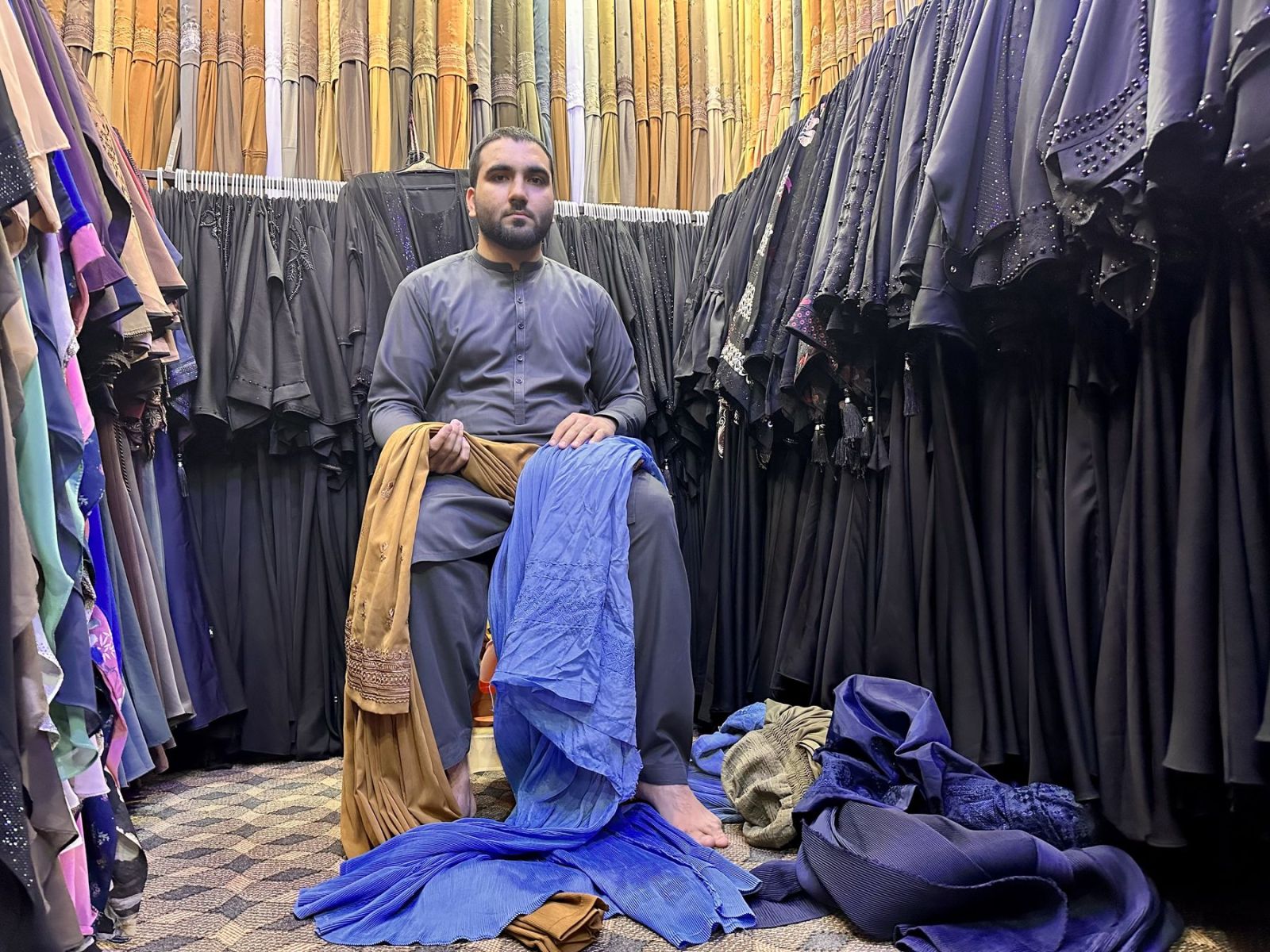
But the business is not Mansoor's. “They can work, but they cannot have any property – specified Fatima Atife from the HRCP – because ‘old refugees’ cards recognize very basic legal coverage: they have access to public schools and health centers, but nothing is free and they don’t have financial help.” However, they are protected from deportation, “and that,” says Mansoor, serves us to live peacefully.” He says that if you join a Pakistani woman you would stay with all the citizen rights, “but it’s very difficult, you don’t want to marry us.”
Samina came to Pakistan 35-40 years ago, she's not clear until she was a child a few months old. She was married when menstruation was first reduced, “at 14-15 years old” and then had five children. Along with other families, they live in the Harvichand area, in the jurta style, without electricity or water, about 20 kilometres from the city of Peshawar. “Don’t photograph me, my husband walks around and doesn’t like it. To the children, do a portrait,” he warned. They are farmers, they live from milk and meat that goats and buffalo give them. They also grow a few vegetables and with the surpluses they go to the market. “When we delete the fabrics we also sell them,” he adds, “but only from here can we move with the help of our husband.” They have no other source of income, so they have not schooled children: “It’s too expensive. We have to pay the landlord for camping here, and we have no more money. I just went to the hospital for delivery,” he says, “it’s also very expensive.”
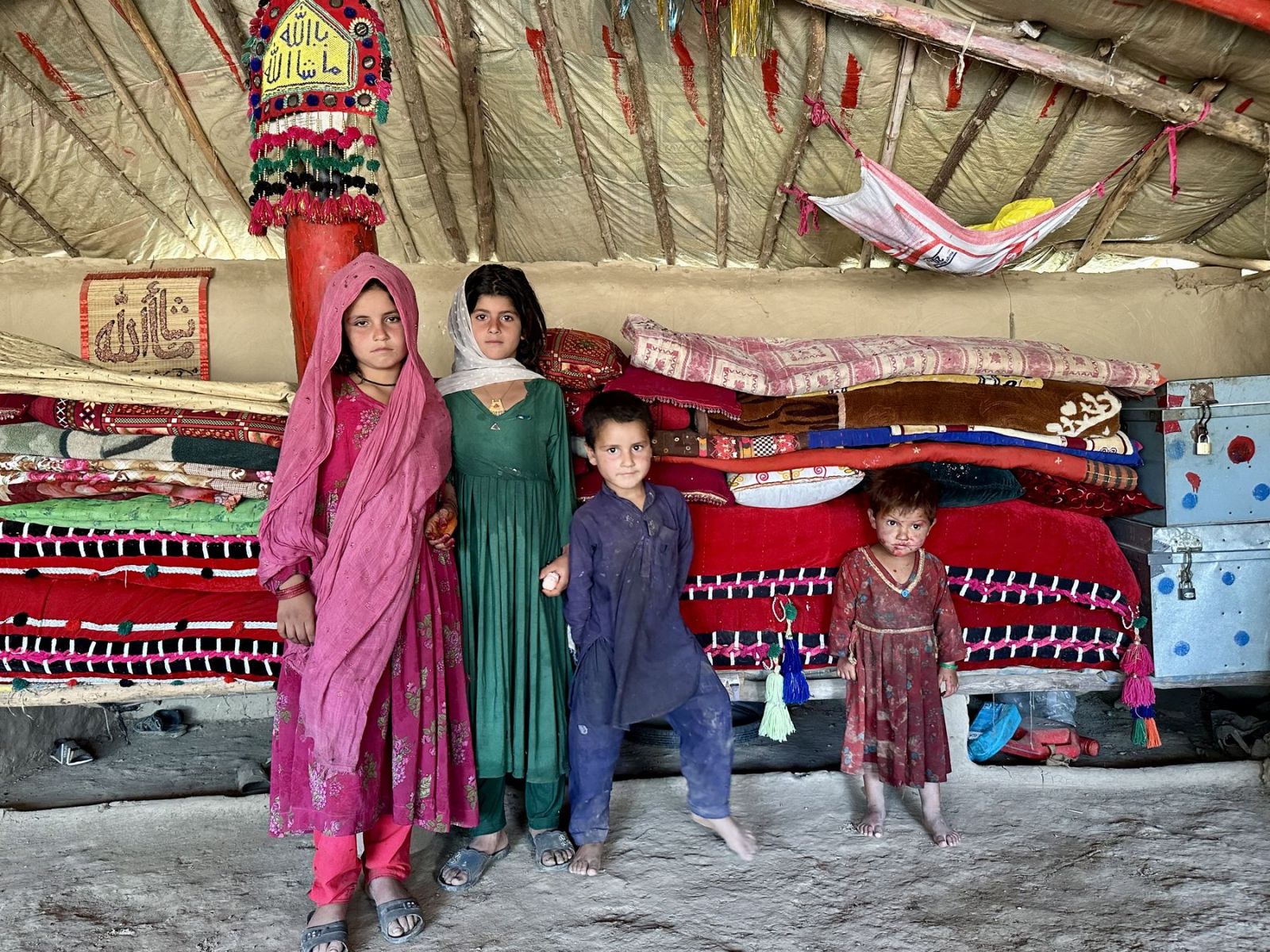
For a while, he remains silent asking how the future of his children represents. “I didn’t want to have that much, but we can’t decide.” And it goes on: “When it’s 7-8 years old, kids can start working on a ranch, but we don’t have any documentation... If not, they will help at home. Because my husband will marry our daughters…”. There are not few, like Samina, the ‘old’ ex-Afghans who live in a legal limbo that is nowhere and has been perpetuated. There are 775,000 in Pakistan, according to UNHCR estimates, which could exceed two million for SHARP.
Kritika artean abiatu dira Gasteizko Arana klinika zena Nazioarteko Babes Harrera Zentro bilakatzeko obrak. Ez auzokideak, ez errefuxiatuekin lan egiten duten gobernuz kanpoko erakundeak, ez PSEz bestelako alderdi politikoak ez daude ados proiektuarekin: makrozentroen ordez,... [+]
"Segurtasun gehiago, inmigrazio gutxiago". Bruno Retailleau barne ministro frantsesa argi mintzatu da, kargua hartu berritan. Etorkinen gaineko kontrola azkartu nahi du Michel Barnier lehen ministro eskuindar-kontserbadorearen gobernuak, eta jada Retailleauk aitzinatu... [+]
Europar Batasunean berriki onartu den Migrazio Itunak, asko zaildu dizkie gauzak euren herrialdetik ihesi doazen eta asiloa eskatzen duten pertsonei. Eskuin muturraren tesiak ogi tartean irentsita, migratzaileentzako kontrol neurri zorrotzagoak onartu dituzte Estrasburgon,... [+]
Migratzaileen kopurua anitz emendatu da Irun eta Hendaia arteko pasabidean. Irungo Harrera Sareak ohartarazi duenez, otsailean 600 pertsona lagundu dituzte, iaz, urte osoan 2.700 izan zirelarik. Iragan urtarrilean, 2.700 etorkin heldu dira Kanariar Uharteetara, egunero 80... [+]





